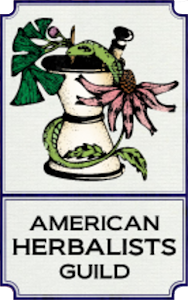For my contribution, I thought I would explore potions made with the wormwood that is still thriving in my garden - even in the cool autumn weather. This potent herb is the main ingredient in Absinthe, but I have never experimented with it, so I went looking online for someone who has!
I came upon this fantastic site that has several recipes to share, steps for making absinth, an overview of professional absinthe, mixed drink recipes, and properties of absinthe ingredients. Check it out!
http://www.newspeakdictionary.com/pf-absinthe.html
Remember: Some of the substances mentioned there can be toxic and may result in injury and very nasty hangovers. Please consult reliable medical information before attempting to ingest the substances listed there. Continued use of absinthe can result in addiction, convulsions, and possibly death.
Wormwood itself has some very interesting history.
- It has been a religious herb among both Hebrew and Greek cultures.
- Sacred to Artemis and Diana.
- Said to have been handed down from Artemis to the Herbalists through Chiron (a centurian) as a primary healing herb.
Some strong ancient traditions.
- Made into the (now outlawed) "highly-addictive and dangerous liqueur", absinthe.
- Counteracting the effects of poisoning by hemlock and toadstools (caution - unproven).
- Plant in general purpose gardens or gardens intended for love, healing, or divination.
And some very interesting magick.
- A most potent herb, it is used in less common works of magick.
- Use this herb to vent anger and negative energy in a peaceful, creative means.
- When a group works magick, this herb can be used to stop war or to inhibit the enemy.
- In tarot, it can be used with the Lovers card.
- A visionary herb used in prophecy and divination (especially in combination with mugwort).
- Worn or burned in incenses to aid in developing psychic powers.
- Carried to protect against bewitchment and the bite of sea serpents.
- Hug from rear view mirrors to protect vehicles from accidents on treacherous roads.
- Used in love potions, mixtures, or spells and can be placed under the bed to draw a loved one.
- Burned to summon spirits (sometimes mixed with sandalwood). According to ancient grimoires, if wormwood is burned in graveyards, the spirits of the dead will rise and speak!
- Throw onto fires on Samhain to gain protection from spirits roaming the night.
It can also be used for herb scrying.
- Get a small quantity of dried patchouli, mugwort, or wormwood.
- Crumble the herb between your hands until it is finely diminished.
- Pour into a small square pan (glass or ceramic).
- Light yellow candles and place the pan on your working area.
- You may also want to burn scrying incense.
- Close your eyes.
- Extend the index finger of your weak hand.
- Gently touch the centre of this pan with your finger tip.
- Move your finger at random shifting from one direction to another without conscious pattern for a few minutes.
- Remove your finger and open your eyes.
- You can now interpret the symbols you have written in the herb.


















